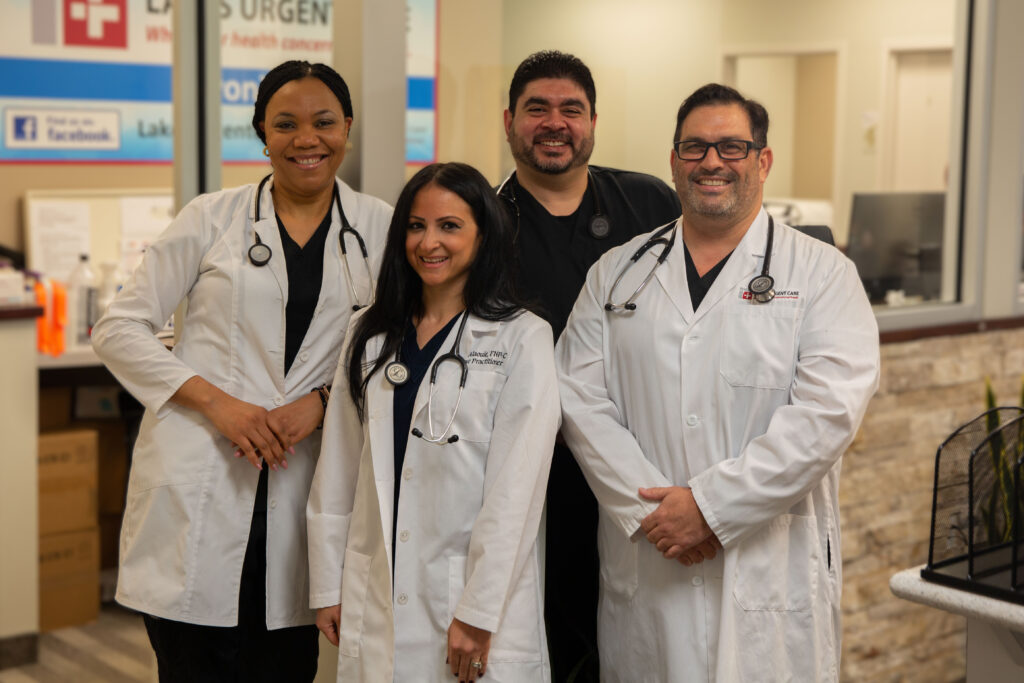Featured Questions:

All Questions
Click on a question or topic below to learn more.
Pneumonia
One reason that it takes so long for people to recover from pneumonia is because of all of the byproducts and debris that is left behind in the lung tissue. While antibiotics help kill the bacteria, your body’s internal weaponry must then work to clear your lungs. This often leads to prolonged and severe coughing and shortness of breath with any significant exertion.
In addition to the energy used in the process of chronic coughing, lingering symptoms of fatigue and weakness can also be pronounced. There’s no surefire way to predict how long it takes for anybody to recover from pneumonia, but those individuals who are not an optimal health at the onset of illness will take longer to recover.
During recovery, it’s important to stay in contact with your primary care physician, who can help you deal with any other potential complications. A local qualified and certified urgent care like Lakes Urgent Care, is another resource if your primary care physician is not available.
The CDC recommends pneumococcal vaccination for all babies and children younger than two years of age, as well as all adults 65 years or older. They also recommend that everyone between the ages of two and 64 who are at increased risk for pneumococcal disease due to underlying chronic medical conditions should also be vaccinated.
There are two pneumonia vaccines currently available on the market. The vaccine sometimes referred to as Prevnar 13 is appropriate for all ages. The vaccine otherwise known as Pneumovax 23 is generally recommended for adults age 65 or older, or those who are at increased risk of contracting pneumonia.
The CDC website, your primary care physician or pediatrician will be an excellent resource of information to decide if you should be vaccinated. The vaccines for adults are available at Lakes Urgent Care if your primary care physician does not stock it.
Pneumonia can range from either mild to life-threatening. Pneumonia is an infection that inflames the air sacs in either one or both lungs. Once this occurs, those sacks may fill with fluid or pus, causing symptoms of cough in addition to fever, chills and difficulty in breathing.
While pneumonia is not contagious, the germs that cause pneumonia can spread from person-to-person. When these bacteria enter the lungs, they can overpower the immune system, which is very delicate. The most serious cases tend to occur with older adults, children and those with chronic diseases like emphysema, asthma and heart disease.
Most commonly, pneumonia is a secondary complication of a milder respiratory infection like bronchitis or especially with those who are afflicted with the flu.